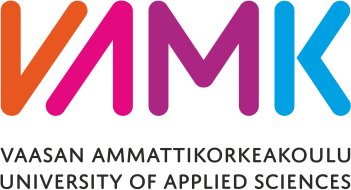Business Knowledge for the battery value chains
As the battery industry grows, also the need for related business expertise increases. The training introduces you with the special features of the battery industry and general areas of operation in the international market. The training covers the special requirements related to the battery industry from the perspective of logistics.
The training consists of three units of 5 ECTS credits and includes studies on the profitability of energy storage, project management and logistics. It is possible to complete the training alongside work. The training is free of charge and is carried out entirely as online studies, so participation is possible from anywhere in Finland. The studies are oriented towards working life and it is possible to complete them alongside work.
NOTE! Registered participants will be required to provide background information on their employment and study status through a separate form, as required by the funding organization of this training. The final selection of students will be approved by the funder.
The training has been funded by the Service Centre for Continuous Learning and Employment. The Service Centre promotes the competence development of working-age people and the availability of skilled labour. The operations of the Service Centre are overseen by the Ministry of Education and Culture and the Ministry of Economic Affairs and Employment.
Benefit
- Training meets the new skills needs of the labor market.
- As the battery industry grows, there is also a need for business expertise that supports the industry.
Target group
- The training is primarily aimed at working people or those outside the labor force (people who are not unemployed but are e.g. on family leave)
- People working within energy sector
- People who aim to gain knowledge from the field
The content of the education:
This 15-credit education consists of three study modules. Each study module is worth 5 credits. The education is organized in three implementations.
- Business Models for Energy Storage
- Managing Gigaprojects
- Battery Business Logistics
The offered study modules are of a level that allows them to be credited towards a lower university degree.
You can find the teaching schedules for each course separately.
The course covers business models of thermal storage, pumped hydro storage plants, and large battery storage from the perspectives of the electricity market (intra-day, day-ahead) and the capacity and reserve markets. During the course is studied the calculation the costs of energy storage (Levelized Cost of Storage; LCoS) and different methods to examine the business profitability of energy storage. The course offers tools for examining energy storage business models and profitability (e.g. IRR, ROI, NPV).
Learning outcomes
After completion of this course you will be able to
- Analyze the different methods of energy storage and the benefits they bring to the energy network.
- Create energy storage models for case companies or a customerproject that can serve as a basis for energy storage business.
- Understand the key parameters for energy storage investment.
- Prepare basic profitability calculations about energy storage
Content
- Basics of physical energy storage.
- Thermal storage, pumped hydro storage plants, and large battery storage
- Electricity market (intra-day, day-ahead) and the capacity and reserve markets
- Methods to examine the business profitability of energy storage
Mode of Teaching and Methods
Online web teaching, workshops, group discussions, Zoom platform
Schedule:
Kick Off 4.9. 16.30-18.00
6.9. – 16.30-18.00
13.9. – 16.30-18.00
20.9. – 16.30-18.00
27.9. – 16.30-18.00
4.10. – 16.30-18.00
11.10. – 16.30-18.00
18.10. – 16.30-18.00
25.10. – 16.30-18.00
1.11. – 16.30-18.00
8.11. – 16.30-18.00
Further Information
Principal lecturer: Ossi Koskinen
ossi.koskinen@vamk.fi
Upon completion of this course, participants will understand the role of logistics as part of a company’s value chain, as well as the international operating environment, particularly in battery business. They will be familiar with the flows of logistics, the significance of value chains, and their optimization opportunities, as well as specialized logistics in a global operating environment. In addition, students will be able to identify and utilize reverse flows in value chains. The course delves into the unique requirements of the battery industry from a logistics perspective, including UN DOT 38.3 and IEC 62281, as well as the transportation of dangerous goods. After the course, students will be able to apply their skills in optimizing logistical flows throughout the entire business lifecycle, specifically in the battery industry. Having completed the course, students will be well-versed in the unique features and general operating areas of the battery industry in international markets and will be able to apply models of logistics and value chain management and development to the field.
Learning outcomes
After completion of this course, you will be able to
- Understand the role of logistics in battery industry value chains and the international operating environment.
- Analyze and map logistical flows in the battery business.
- Recognize the importance of reverse logistics and incorporate circular economy principles.
- Navigate battery industry regulations, including UN DOT 38.3, IEC 62281, and the transportation of hazardous materials.
- Design and manage warehouses and inventories tailored to the battery industry.
- Select appropriate transportation modes, packaging, and labeling for battery products.
- Develop cost reduction strategies and implement lean logistics and Six Sigma methodologies.
- Evaluate the environmental impact of battery production and logistics and implement strategies for sustainability.
Content
- Introduction to Battery Business Logistics
- Logistical Flows and Value Chain Significance
- Value Chain Optimization
- Reverse Logistics and Circular Economy
- Battery Industry Regulations and Compliance
- Warehousing and Inventory Management
- Transportation and Distribution in the Battery Industry
- Cost Optimization and EfficiencyDanielEmi97!
- Risk Management and Resilience
- Global Battery Logistics and Trade
- Sustainability and Environmental Considerations
- Course Summary and Future Outlook
Mode of Teaching and Methods
Online web teaching, workshops, group discussions, Zoom platform
Schedule:
Kick Off 4.9. 16.30-18.00
8.9. – 16.30-18.00
15.9. – 16.30-18.00
22.9. – 16.30-18.00
29.9. – 16.30-18.00
6.10. – 16.30-18.00
13.10. – 16.30-18.00
27.10. – 16.30-18.00
3.11. – 16.30-18.00
10.11. – 16.30-18.00
17.11. – 16.30-18.00
Further Information
Principal lecturer: Daniel Sahebi
daniel.sahebi@vamk.fi
Expand your project management knowledge to the next level! Upon completion of this course, participants will understand project management and control principles. They understand the roles and the responsibilities focusing on large projects with global impact. They understand how to connect the project int company strategy. The entire life cycle of a project from target setting to resource planning, scheduling, monitoring, quality control, deployment, approval, possible warranty periods, obligations and possibilities. The examples will come from the battery industry and other relevant fields. After the curse the participant will know cost and risk management principles and can apply different project management models and best practices into project, program and portfolio management.
Learning outcomes
After completion of this course you will be able to
- Understand project management and control principles
- Understand the roles and the responsibilities focusing on large projects with global impact
- Understand the cost and risk management principles and can apply different project management models and best practices into project, program and portfolio management
Content
- The entire life cycle of a project from target setting to resource planning, scheduling, monitoring, quality control, deployment, approval, possible warranty periods, obligations and possibilities. The examples will come from the battery industry and other relevant fields.
Mode of Teaching and Methods
Online web teaching, workshops, group discussions, Zoom platform
Schedule:
Kick Off 4.9. 16.30-18.00
10.1. – 16.30-18.00
7.2. – 16.30-18.00
6.3. – 16.30-18.00
Further Information
Lecturer: Teemu Myllylä
tmy@vamk.fi
Applying for training
Participants can participate in one or more courses or complete the entire study unit if they wish. Applying for training takes place at Opintopolku. The application period for the autumn 2023 implementation is 5.6.–18.8.2023. The financier approves the final student selections. The number of participants from an individual company may have to be limited.
Further Information
Further information about enrolment: avoin@vamk.fi


